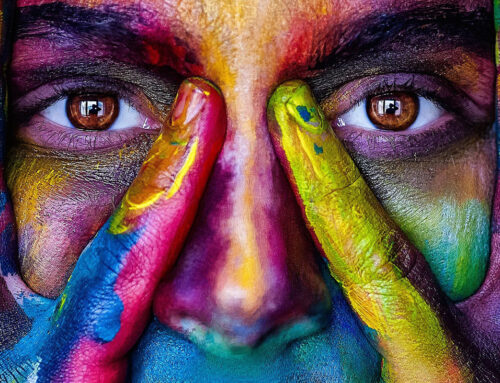The anxiety and depression that many people suffer from after Christmas is called the post-Christmas blues. It’s a common phenomenon, but it can be hard to cope with.
It’s been reported that anxiety levels are elevated during the first few weeks of January, and this post-Christmas anxiety can take many forms, from social anxiety to depression. This blog post will discuss some common symptoms and offer a few tips for dealing with your anxiety.
What are the Symptoms of Post-Christmas Blues?
There are many symptoms of anxiety and depression that people especially experience after Christmas. Some feel very alone, anxious to face the world again, or just need time off from socialising with others to avoid anxiety attacks or depressive episodes. It’s important not to push yourself too much though – even if you’re feeling better, it’s not a good idea to go back to your normal routine right away.
Symptoms of post-Christmas blues can include:
- Feeling down or sad after the holiday season
- Feeling overwhelmed or stressed out
- Experiencing anxiety or panic attacks
- Having trouble sleeping or concentrating
- Feeling like you’re in a “funk”
If you are experiencing any of these symptoms, here are a few things to remember:
Remind yourself that anxiety is a normal response to stress and it should pass with time
Anxiety is not the same as fear; it’s your body’s way of preparing you for danger or reacting to situations that feel like they’re dangerous. It doesn’t always make sense either, but can be explained by changes in hormones and neurotransmitters (brain chemicals) which are released when stress is present.
It’s likely anxiety will likely pass with time if you do not try to fight it or resist it; instead, accept that anxiety is here and allow yourself to feel the emotion without judgement or fear.
Ask yourself, ‘what you can do to make your anxiety easier’?
If you are feeling overwhelmed by post-Christmas blues, consider trying out self-hypnosis.
Many people find that self-hypnosis can be a helpful tool for managing anxiety. Self-hypnosis is a trance state in which you can access the subconscious mind and change your thoughts and feelings about yourself and the world around you. This can be an effective way to reduce anxiety and improve your mood.
There are many self-hypnosis recordings available online or you can work with a hypnotherapist to create a personalised recording specifically for you.
Practice gratitude
Gratitude is one of the most important tools we can use to manage anxiety. Studies show that people who are grateful for what they have in life tend to be happier, healthier and live longer than those who aren’t as thankful.
In addition, practicing gratitude allows you to recognise that anxiety isn’t something that defines your entire life; there are many things to be grateful for, even if anxiety is a part of your life. When we focus on the good in our lives, it becomes more difficult for anxiety to take over.
Self-hypnosis can help you develop a gratitude practice. In hypnosis, you will be asked to focus on all of the things that you are grateful for in your life. This can be a very powerful exercise, as it allows you to see all of the good that exists.
Talk with your friends and family
This can be helpful to finding relief and understanding why you’re experiencing post-Christmas blues. Bottling up your feelings will only make them worse.
If you are feeling lonely or isolated after Christmas, consider reaching out to friends and family for support. We are wired for connection; spending time around people who care about you can help ease anxiety or depression.
Spend time laughing, talking and enjoying each other’s company. You will be glad you did!
Make a little ‘you time’
Take some time for self-care such as exercising, getting outside or reading a book. This can help boost your mood and increase serotonin levels in the brain. If you’re feeling stuck and can’t find the energy to move on then why not consider hypnotherapy as a way to break the cycle.
Consider hypnotherapy to help overcome post-Christmas blues?
If you are interested in using self-hypnosis to manage anxiety, it may be helpful to find a professional hypnotherapist. A hypnotherapist can provide support and guidance as you work through anxiety as well as giving you tips on how to use self-hypnosis to reduce the effects of post-Christmas blues.
How does hypnotherapy beat the blues?
Hypnotherapy can boost serotonin levels in the brain by reducing anxiety and increasing positive feelings. Serotonin is a neurotransmitter that helps regulate mood, sleep and appetite and it’s thought to be involved with depressive disorders like anxiety or bipolar disorder (also known as manic depression).
When people feel good about themselves, they are more likely to take care of themselves and this can include things like eating healthy foods, getting enough sleep and exercise. All of these things help to boost serotonin levels in the brain.
Try meditation
Both meditation and hypnosis are used to help people relax and focus. In both cases, the person is in a state of relaxation and heightened concentration. This can be helpful for anxiety management, as it allows you to focus on your breath and release any tension or anxiety that you may be feeling.
Both hypnotherapy and meditation teach us mindfulness, which can be a very effective anxiety management technique. Mindfulness means being fully present in the moment and not worrying about what happened yesterday or what will happen tomorrow. When we are mindful, anxiety doesn’t have the same hold over us because our thoughts aren’t consumed with past or future events that may cause anxiety.
Meditation helps you to become more aware of your anxiety symptoms. This can be very useful for anxiety management, as it allows you to identify the signs that are happening and learn how to control them!
Enjoy nature
There are many reasons why spending time in nature helps reduce anxiety. One reason is that nature provides a sense of calm and peace. In addition, being surrounded by plants and animals can help increase our attention span and promote relaxation.
When we spend time in nature, our brain gets a break from the constant stimulation it receives from technology and screens.
Imagine your anxiety as a leash with you on one end and anxiety on the other. Anxiety is always pulling at us and making decisions for us. When we disconnect from technology and screens and spend time in nature, anxiety is no longer in charge: we are! We get to decide what to look at or think about, which gives anxiety less control over us.











